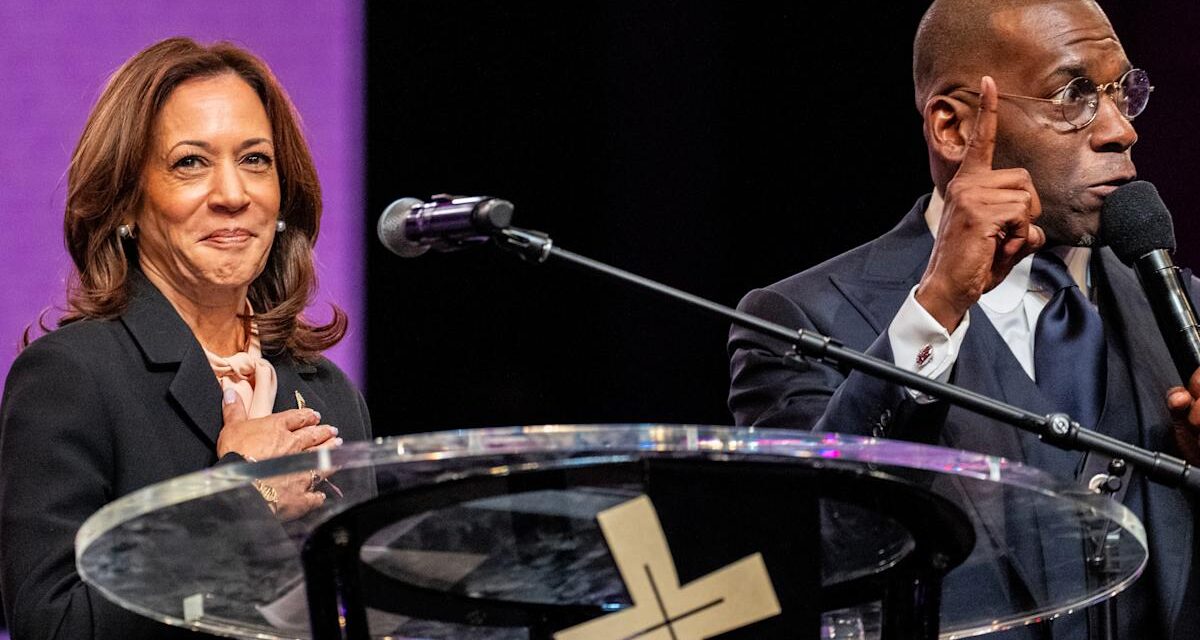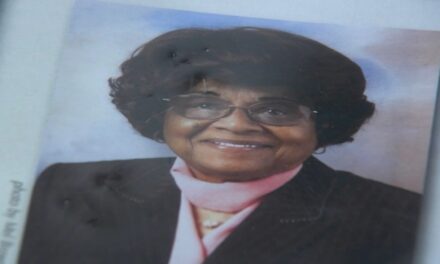Starting Wednesday, more than 100,000 people, many of them parishioners at Black churches, are pledging to abstain from shopping at Target, part of a 40-day nationwide boycott of the retail giant more than a month after the company abandoned its diversity, equity and inclusion initiatives.
The effort, led by prominent faith and civil rights leaders such as Pastor Jamal Bryant, includes Atlanta, Houston, Jacksonville, Florida and Alexandria, Virginia.
The “Target Fast” coincides with Lent and is the latest consumer action against one of the largest retail companies in the country. Since Target announced in January that it would roll back some of its DEI efforts, including plans to hire from underrepresented groups, consumer boycotts and demonstrations have sprung up across the country. Many occurred during Black History Month, and on Feb. 28, consumers participated in a 24-hour “economic blackout” of major corporate chains.
“The advances made during the civil rights movement are being pushed backwards with the cancellation of DEI,” Bryant said. “This generation owes it to the previous generation to fight to try to make America great, which is only happening through diversity.”
Here’s what to know about the 40-day Target Fast.
—
Why are people boycotting Target, and how long will it last?
Target has faced backlash from consumers and shareholders since the retailer announced on Jan. 24 that it would end its DEI initiatives.
Target said it would terminate its three-year DEI goals, racial equity initiatives aimed at improving representation for Black businesses and suppliers, and external diversity-focused surveys. The company also said it would stop submitting information to the Human Rights Campaign’s Corporate Equality Index, which evaluates corporate policies on LGBTQ+ inclusion, The Washington Post previously reported.
Bryant called Target’s decision to abandon its DEI initiatives “disheartening.”
“I was shocked because they made a commitment to invest in Black businesses upward of $2 billion after the death of George Floyd” in 2020, he said. “A company that we believed was an ally to our community suddenly had convenient amnesia under this administration.”
The boycott will last 40 days, and Bryant said roughly 110,000 people have signed up to participate. Revs. Marcus D. Cosby of the Wheeler Avenue Baptist Church in Houston and Howard-John Wesley of the Alfred Street Baptist Church in Alexandria also are among those leading the effort.
As a part of the boycott, consumers will sell their stock and refrain from shopping at Target stores, opting instead to spend their money at Black-owned businesses. Bryant said they have partnered with the U.S. Black Chambers to offer boycotting consumers a digital directory of roughly 300,000 businesses that they can support instead of Target. Consumers will also be able to track their spending in an app, he said.
“I think that this is going to be not an event, but really a movement around enterprise and around small business and around Black businesses, all the more that I think will change the trajectory of the economy of Black people,” he said.
Bryant said the boycott has a “spiritual entity,” as well – hence the decision to kick off the action on Ash Wednesday.
“We really have got to tap into our spiritual source because we’ve got a long four years ahead of us,” he said. “In order for us to do it, it’s going to require a divine intervention and strengthening, and so that’s why every person who is in it, we’re sending a prayer journal, a prayer guide for these 40 days, so that people are able to stay grounded.”
—
Who is Jamal Bryant?
Jamal Harrison Bryant is a senior pastor at the New Birth Missionary Baptist Church in Stonecrest, Georgia.
The son of two preachers, Bryant founded the Empowerment Temple African Methodist Episcopal Church in Baltimore in 2002 before leaving for New Birth in 2018. While a pastor at Empowerment Temple, Bryant delivered the eulogy for Freddie Gray, an unarmed Black man who died in 2015 of a severe spinal cord injury he suffered while in custody of Baltimore police officers. Bryant organized protests after Gray’s death. Bryant also ran for Congress in 2015, challenging Rep. Elijah E. Cummings (D) for the seat he had held for 11 terms.
Bryant, who is also a prominent activist and civil rights leader, has spearheaded efforts to expand voting rights, and spoken out against police brutality and the killings of unarmed Black Americans. In 2012, he traveled to Florida after the shooting death of Trayvon Martin to push for an investigation and the arrest of shooter George Zimmerman, who was acquitted of second-degree murder.
Bryant has criticized Black pastors who’ve come out in support of President Donald Trump. During her 2024 presidential campaign, Vice President Kamala Harris spoke from the pulpit at New Birth.
—
Why did Target remove its DEI programs?
Target’s decision to scrap its DEI initiatives came after Trump issued executive orders cracking down on such efforts just 48 hours into his second term in office.
Trump directed agency heads to draw up lists of public companies to investigate over their DEI policies, which legal experts previously told The Post could send chills through the private sector.
Amazon, Google, Meta, McDonald’s and Walmart also have begun to wind down their DEI programs in recent months in the face of legal and political reprisals. (Amazon founder Jeff Bezos owns The Washington Post.)
—
Is the boycott expected to have an impact?
Target is no stranger to boycotts. In June 2023, the company faced right-wing backlash for carrying Pride Month merchandise and promotional materials. The routine commemoration put the retail giant in the middle of a culture war over LGBTQ+ rights, with store employees subjected to threats and harassment. Two months later, Target reported its first quarterly sales drop in six years.
Target released its most recent quarterly report on Thursday. The report, which covers the holiday season, noted a small decline in sales in February. Target attributes the slowdown to cold weather affecting apparel sales and declining consumer confidence.
Time will tell how seriously the consumer boycott affects the retailer.
“Every little bit counts,” Bryant said. “Nobody wants to see that level of dramatic decrease, and I believe that the stockholders are going to cry loud, even on our behalf, that something has to be done.”
The boycott ends April 17. At that time, Bryant said, the leaders will assess the financial impact of the boycott and attempt to meet with the company’s board. “People can lie, but numbers don’t,” he said.
Related Content
NIH reels with fear, uncertainty about future of scientific research
After Trump threats, Hong Kong firm to sell stake in Panama Canal ports
Who is the real Hank Azaria? For a while, even he didn’t know.





